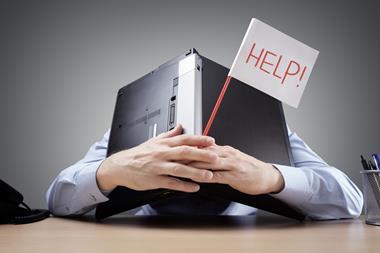New rules due to come into force this autumn could force European companies to carry out a total recall of products deemed to put consumers at risk. The rules will also allow the European Commission to make commercially sensitive information public across all 25 European Union member states if it believes that there is an unnecessary health risk relating to a company's product.
The General Product Safety Directive - which EU member states should have implemented by 15 January 2004, but which the UK has still not finalised - aims to improve the safety of consumer products. Among other things, it obliges member states to impose new obligations on producers and distributors of such products. These obligations are to be backed up with 'effective, persuasive and proportionate penalties'. Member states are to ensure that national enforcement agencies have the power to protect the public from unsafe products.
The directive requires member states to ensure that producers place only safe products on the market, and it applies to all products intended for consumer use. This definition includes products used for service provision, such as the hairdryers used in hair salons, gym equipment used in health centres and lifts in shops and offices. It could also include aeroplanes, trains and cars used for public transport.
The directive applies to both manufacturers and distributors. Both have a duty to immediately inform the authorities if they conclude that a product that they have placed on the market is dangerous, and must provide details of their response plans.
Producers must also take 'appropriate action' in the event of a product crisis. This includes withdrawing products from the market, adequately and effectively warning consumers, and, as a last resort, recalling products directly from consumers. If they fail to take action voluntarily, the competent national authorities (trading standards and environmental health officers in the UK) may order them to do so.
This means that producers must take steps to ensure that they are kept aware of any product risk and that their goods are sufficiently traceable.
Relevant measures include compulsory product reference/batch marking and, if appropriate, sample testing, investigations and the maintenance of complaints registers.
Compliance and enforcement
Companies should be under no illusion that the directive cannot be enforced at the highest level. The EU, for example, has considerable powers to ensure compliance and enforcement. National authorities must notify details of product crises and response measures to the Commission, which in turn disseminates that information to other member states. Where problems arise in a number of member states, the Commission may take direct steps itself, including ordering that public warnings be given about the risks posed by a product, requiring an EU-wide withdrawal or product recall, and imposing a temporary or permanent sales ban.
Furthermore, under the new rules, all information that is available to national authorities or to the Commission relating to risks to consumer health and safety will generally be made available to the public. In fact, the directive expressly provides that trade secret information may be disclosed, if necessary, to protect consumer health and safety.
So far, most recalls for general consumer goods - as opposed to foodstuffs - have been made voluntarily by producers. But the costs can be phenomenal.
In the summer of 2001 former Ford chief executive Jacques Nasser had to testify before the US Congress about the safety of its 4x4 sports utility vehicle, the Ford Explorer. The hearings took place soon after the US National Highway Traffic Safety Administration announced that 203 people had been killed in accidents involving Explorers with Firestone tyres.
Ford replaced around 13m tyres at a cost rumoured to be around US$3bn. Soon after, Ford's CEO was also replaced.
In the UK Coca-Cola's recall of its bottled water product Dasani in 2004 is estimated to have cost £50m. The overall costs of the Sudan 1 red food dye recall earlier this year are reported to be in the region of £100m.
Howard Watson, partner in the litigation group at law firm Herbert Smith, says that since the directive has been brought into law in the majority of EU states, "there has been a significant rise in the number of voluntary recalls". According to the EC, the number of product recalls has nearly trebled, from 139 in 2003 to 388 last year.
The impact
Business interest groups in the UK and Europe are worried that companies could be made liable for potentially ruinous product recall expenses as a result of the directive, while the market for product recall insurance remains low, premiums soar in price and coverage is limited.
Peter Carver, director general of the Association of Manufacturers of Domestic Appliances (AMDEA), says that product recalls can be massively expensive. This is because a recall - as opposed to a product withdrawal - can mean manufacturers and suppliers having to personally visit individual consumers and retrieve the faulty goods.
Carver adds that most manufacturers and component suppliers already have robust product testing and traceability processes in place and so do not feel particularly threatened by the directive. However, he says that there is still little affordable or suitable insurance coverage that would entice companies to buy it.
UK business lobby group the Confederation of British Industry says that affordable insurance coverage to deal with product recall is "hard to find". "Most companies do not bother trying to purchase such insurance, as most insurers will not offer sufficient coverage. Instead, companies either end up financing the entire recall themselves, or use self-insurance vehicles such as offshore captives to offset their liabilities," says a CBI spokesperson.
Ed Mitchell, a recall underwriter at Beazley Underwriters, a Lloyds of London syndicate, says that product recall policies are still not that popular among most manufacturers and suppliers. But he believes that the product recall market will grow and become more sophisticated, not only because of the impending directive, but also because "companies are slowly understanding the horrific costs involved in a product recall and are only too aware how the associated bad publicity can dent their coffers even more".
The legislation is "definitely having an impact on companies' approach to recall planning and crisis management," says Ian Harrison, director of programs and facilities for Miller Insurance Services. But he adds that while demand for product recall insurance is increasing, insurance capacity for such coverage, particularly outside the food and beverages sector, remains limited.
Marcos Garcia Norris, senior underwriter and assistant vice-president in the crisis management division of AIG Europe, is also expecting the market to develop significantly, though more in terms of food product recall - specifically excluded from the latest directive - rather than general consumer goods. He believes that the food safety directive has resulted in a 30% increase in submissions to AIG Europe for product recall insurance in the past few months. He adds that AIG has recently increased its primary capacity for the food and beverages sector to US$10m from US$6m for accidental damage as well as offering coverage up to US$30m for malicious tampering and extortion. However, the insurer's primary capacity for non-food recalls - meaning those specifically defined under the directive - is slightly lower at US$6m.
Some companies are looking at ways of finding affordable cover. Swedish electrical household product company Electrolux has said that it is exploring options regarding the transfer of its product recall risks into the insurance market, though not as a result of the new directive.
Currently, the company carries product recall insurance in only two countries, though the firm declines to reveal which two these might be. However, the company admits that it is looking at the option of a global approach to addressing its product recall exposures.
Yet the majority of European businesses accept that comprehensive product testing is the only way of avoiding a recall. Carlos Almaraz, consumer affairs adviser at European business lobby group UNICE, says that large businesses have been operating effective product safety and post-marketing systems for some time, and believes that the new provisions should make little impact in practice.
"It has been known for years that the standard of product safety in Europe is high and the only problem area might be imports of electrical products and toys as safety standards change," he adds.
Peter Berring, chairman of the Association of Insurance and Risk Managers (AIRMIC), says that the directive may affect supplier relationships because of the greater onus on safety and product traceability. "In the event of a recall, manufacturers need to have assurance that their suppliers have comprehensive details of who they have been supplying to and where they have been sourcing their materials from. Some longstanding supplier relationships may be at risk if these companies do not have sufficient audit trails," says Berring.
Paul Bowden, head of the products group at law firm Freshfields Bruckhaus Deringer, says that there are a number of very important issues that UK businesses need to be aware of. "Many businesses will need to overhaul their product monitoring and crisis management capabilities to ensure they comply with the new directive. They will need to check that their products are sufficiently traceable and that the company has a robust crisis management plan to ensure that it can report 'immediately' how it plans to deal with any safety issue," he explains.
Bowden adds that another difficulty facing UK companies is that even though each member state will have implemented the directive into their own legal system, it is likely to lead to 25 different versions of the same legislation, with punitive measures varying from one country to the next.
"Companies also need to be aware that while their products may comply with safety standards in Germany, they might infringe Italian, Spanish, Dutch, Swedish, or Polish regulators even though the local law is based on the same directive," says Richard Matthews, head of product liability at law firm Eversheds.
"Because member states will have some latitude on how to implement the directive, there may be significant differences between different national safety regimes. Companies should err on the side of caution. The directive could be a potential minefield", he adds.
Neil Hodge is a freelance writer.

















